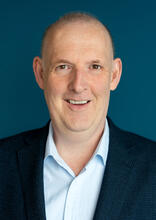 Thanks to modern technology, we are amassing data at an incredible pace. This data is revolutionizing the way we see and interact with our world. Just as the invention of the microscope made previously invisible processes observable for the first time, opening a whole new realm of microbiology, big data can provide us with transformational insights into the world around us, and give us the tools to change it, for better or for worse.
Thanks to modern technology, we are amassing data at an incredible pace. This data is revolutionizing the way we see and interact with our world. Just as the invention of the microscope made previously invisible processes observable for the first time, opening a whole new realm of microbiology, big data can provide us with transformational insights into the world around us, and give us the tools to change it, for better or for worse.
The applications and insights are myriad. When effectively mined, secured and analyzed, our data can be a powerful positive force, helping us fight infectious diseases, combat climate change, build smarter, more resource-efficient cities and fuel economic growth.
Yet, as a society, we are still in the nascent stages of this revolution, and its full potential has yet to be realized. It is essential that we understand, shape and control the tools we are just starting to wield.
This is where the Faculty of Mathematics—its alumni, researchers, students and friends—is leading the way. Our Math community includes many world-renowned data science innovators. And these innovators are accelerating progress at every stage of the data processing pipeline—from data cleaning and management to security and privacy to modelling and analysis.
This issue of E-Ties features is focused on the theme of data analytics and features stories about:
- Xi He, Assistant Professor at the Cheriton School of Computer Science, who recently published a book called Differential Privacy for Databases that focuses on techniques, algorithms and systems for answering database-style queries with differential privacy;
- Peter Suma (MASc’ 17), CEO of Applied Brain Research (ABR), who has developed a new kind of artificial intelligence (AI) that mimics human neural networks and processes data in a highly energy-efficient way;
- Mark Penney, a postdoctoral researcher with the Department of Applied Mathematics at the University of Waterloo, who has developed a program that could be added to the COVID alert app used on smartphones to better target vaccination campaigns; and
- Our new data science major, a joint program between the David R Cheriton School of Computer Science and our department of Statistics and Actuarial Sciences.
In addition, we’ve included a story Professor Ian Munro, who is celebrating 50 years at Waterloo.
I hope you are as inspired by their stories as I was. If you have a story of your own about how you or your company is using data to create a better world, we’d love to hear it. Please send us an email at mathalumni@uwaterloo.ca.
Finally, I encourage you to support the Faculty of Mathematics on Giving Tuesday (November 30) by making a gift to the Experiential Student Success Fund. The recently launched fund enables math students to earn co-op credits while working for start-ups and not for profits and participating in innovative new initiatives. Steven Woods (MMath ’91, PhD ’96), CTO and Partner at Inovia Capital, will give $5,000 to the Fund when 25 people donate to this challenge. Please join us in helping our students thrive.
Thank you,
Mark Giesbrecht





